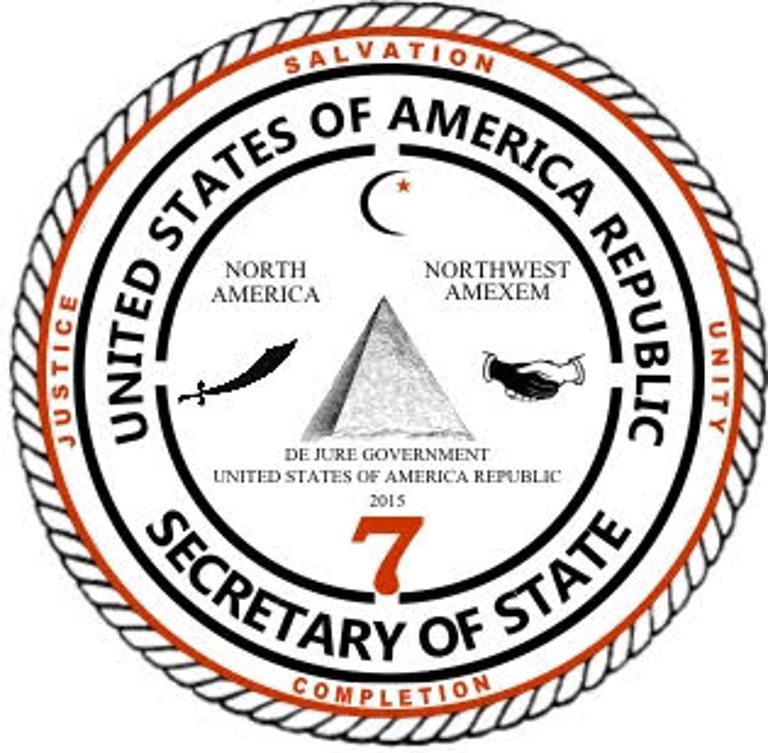AN OFFICIAL SITE OF THE UNITED STATES OF AMERICA REPUBLIC NATIONAL GOVERNMENT
DIVISION BUSINESS SERVICES
1. Business Registration and Incorporation
· Business Entity Formation: The Secretary of State’s office facilitates the formation of various types of business entities, including sole proprietorships, partnerships, limited liability companies (LLCs), and corporations. Businesses can choose the appropriate structure based on their objectives and legal requirements.
· National Registration: Businesses must register with the national government, (regardless of location of operations). This process includes acquiring the necessary registration card.
· Trademark and Intellectual Property Protection: The U.S.A. Republic provides businesses with services to protect their intellectual property, including patents, trademarks, and copyrights, ensuring that business assets are legally safeguarded.
2. Taxation and Fiscal Services
· Business Taxation Guidance: The U.S.A. Republic offers clear guidelines on business taxes, including income tax, sales tax, and payroll tax. It provides businesses with resources on how to comply with fiscal obligations and maximize their tax efficiency.
· Tax Identification Number (TIN): Every business must acquire a Tax Identification Number (TIN) for tax reporting and compliance purposes. This number is essential for submitting taxes, opening business accounts, and engaging in trade.
· Incentives and Deductions: The Republic offers tax incentives and deductions for businesses involved in research and development, sustainable practices, and community-based initiatives. Special provisions may apply to support innovation and the development of green technologies.
· Customs and Trade Duties: The Secretary of State’s office ensures businesses understand customs duties, trade restrictions, and international trade agreements, facilitating businesses in exporting and importing goods in compliance with national and international law.
3. Trade and Export Services
· Export Support: Businesses interested in exporting goods and services internationally can access support from the U.S.A. Republic's trade agencies (currently being developed). This includes export documentation, market research, trade negotiations, and assistance with identifying international markets for goods and services.
· International Trade Agreements: The U.S.A. Republic engages in bilateral and multilateral trade agreements to help businesses expand globally. This includes access to preferential trade terms and protection under international law.
· Customs Services: Businesses engaged in international trade can rely on the U.S.A. Republic’s customs services to navigate import/export regulations, tariffs, and compliance requirements, ensuring smooth international trade operations.
4. Business Financing and Investment
· Government-backed Loans and Grants: The Republic provides access to various business loans, grants, and financing programs aimed at supporting startups, small businesses, and innovative ventures. This includes assistance in obtaining low-interest loans for expansion, research, and development.
· Investment Facilitation: The U.S.A. Republic supports businesses in securing investment through partnerships with private equity firms, venture capital groups, and angel investors. The government offers consultation services to help businesses pitch for funding and access critical financial resources.
· Public-Private Partnerships: The Republic fosters public-private partnerships to facilitate infrastructure development, innovative projects, and community-based initiatives that benefit both the economy and society.
5. Labor and Employment Services
· Workforce Development Programs: Businesses can access a variety of workforce development programs designed to train and upskill employees, ensuring that they have access to a skilled and qualified workforce. These programs help businesses maintain a competitive advantage in the market.
· Labor Law Compliance: The U.S.A. Republic ensures businesses understand labor laws related to employee rights, compensation, safety, and working conditions. The government provides guidance on establishing fair labor practices and avoiding discrimination.
· Employee Benefits and Welfare: Employers can access information on providing employee benefits, such as healthcare, retirement savings plans, and paid leave. The Republic encourages businesses to offer comprehensive benefit packages to attract and retain talent.
6. Business Licenses and Permits
· Industry-Specific Licenses: Businesses must obtain industry-specific licenses to operate in certain sectors (e.g., financial services, healthcare, construction, etc.). The Secretary of State’s office offers guidance and assistance in obtaining the appropriate permits and licenses for each type of business.
· Local Business Permits: Beyond national and federal registration, businesses must obtain local permits related to zoning, land use, and local regulatory compliance. Local governments within the U.S.A. Republic oversee these permits.
· Environmental Compliance: Businesses involved in activities that impact the environment must comply with environmental regulations. The Republic provides resources and support to ensure businesses meet local, national, and international environmental standards.
7. Business Development and Networking
· Entrepreneurship Support: The U.S.A. Republic provides entrepreneurial support services to new and growing businesses. This includes business incubation programs, mentorship, networking events, and resources for business planning.
· Industry Associations and Chambers of Commerce: Businesses are encouraged to engage with industry associations and Chambers of Commerce to foster networking, collaborate on industry standards, and promote mutual business interests.
· Strategic Partnerships: The Republic promotes strategic partnerships between businesses, encouraging collaboration across sectors, fostering innovation, and building alliances that support economic growth.
8. Technology and Innovation Services
· Research and Development (R&D): Businesses involved in technological innovation, science, and research can access government incentives, grants, and tax deductions to promote R&D activities. The U.S.A. Republic supports innovation through public and private sector collaborations.
· Digital Infrastructure: The Republic ensures businesses have access to a robust digital infrastructure, including high-speed internet, cloud computing services, and technological support, enabling businesses to leverage technology for growth and efficiency.
· Cybersecurity Support: With an increasing reliance on digital platforms, businesses are offered guidance and services related to cybersecurity, ensuring they protect sensitive data, adhere to privacy laws, and minimize exposure to cyber threats.
9. Regulatory and Legal Services
· Legal Support for Businesses: The U.S.A. Republic provides businesses with access to legal resources related to corporate governance, contract disputes, intellectual property issues, and compliance with local and international regulations.
· Regulatory Compliance Assistance: Businesses can receive support ensuring they are in compliance with all local, provincial, and national regulations regarding business operations, environmental standards, and safety protocols.


Business Services
These services typically include:
Business Entity Registration: This involves registering various types of business entities, such as corporations, limited liability companies (LLCs), partnerships, and sole proprietorships. The office often maintains a database of all registered businesses in the state.
Business Name Registration: If you're operating a business under a name other than your own personal name, you'll often need to file a "Doing Business As" (DBA) or trade name registration.
Annual Filings and Reports: Businesses are usually required to file annual reports or other documents to maintain their active status in the state's records. This is often done through the Secretary of State's office.
Corporate Filings: This could include submitting articles of incorporation, amendments to the original articles, and changes in business structure or ownership.
Nonprofit Organization Services: Many Secretary of State offices handle the registration and compliance processes for nonprofit organizations, ensuring that they meet the state's legal requirements for operation.
Licensing and Permits: While some licenses and permits are managed by specific state agencies, the Secretary of State's office often provides information on the necessary steps to obtain required business licenses.
Authentication Services: The Secretary of State’s office may provide authentication or apostille services for documents related to business, such as verifying that documents are legitimate for international use.
Business Records and Document Access: The office may provide access to public records and filings related to businesses, such as articles of incorporation, annual reports, and other documents filed with the state.
Trademarks and Service Marks: Some Secretary of State offices handle the registration of state-level trademarks and service marks.
The specific services and processes can vary by state, so it’s always a good idea to visit the website of your state’s Secretary of State office for detailed instructions and requirements.
UNITED STATES OF AMERICA REPUBLIC SECRETARY OF STATE
ADDRESS:
USAR SOS
1499 MARTIN LUTHER KING DRIVE, STE 64102
PROVINCE INDIANA, 46402
TO BE ADDED TO MAILING LIST
© 2025. All rights reserved.
toll free number: (888) 234 4743
info@usarsosgov.us
